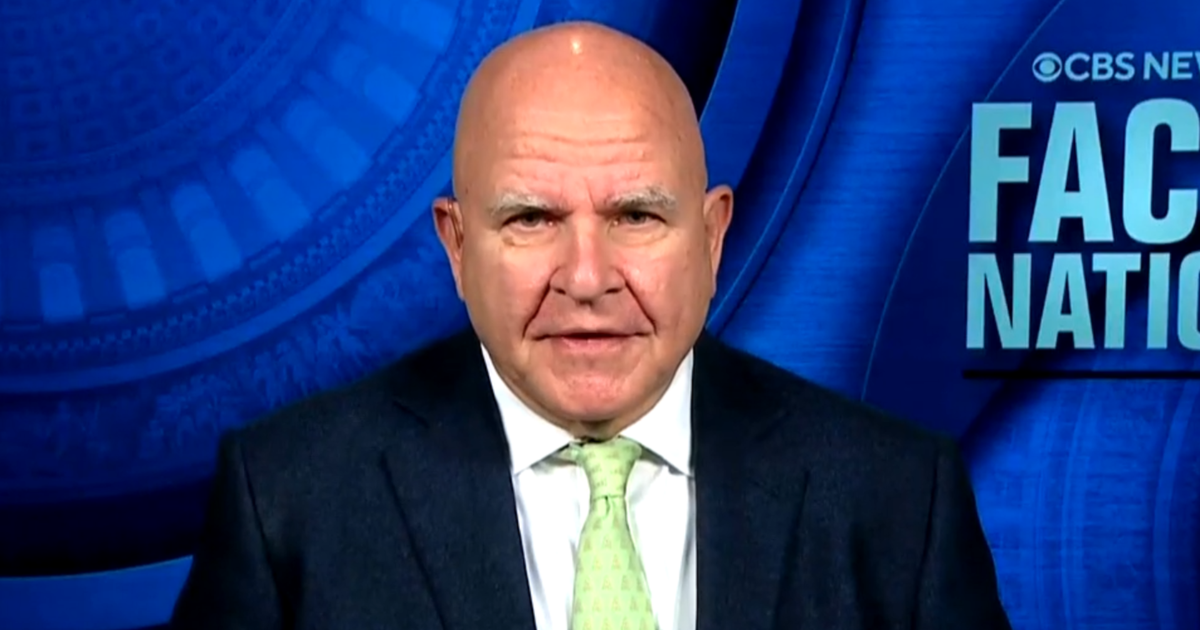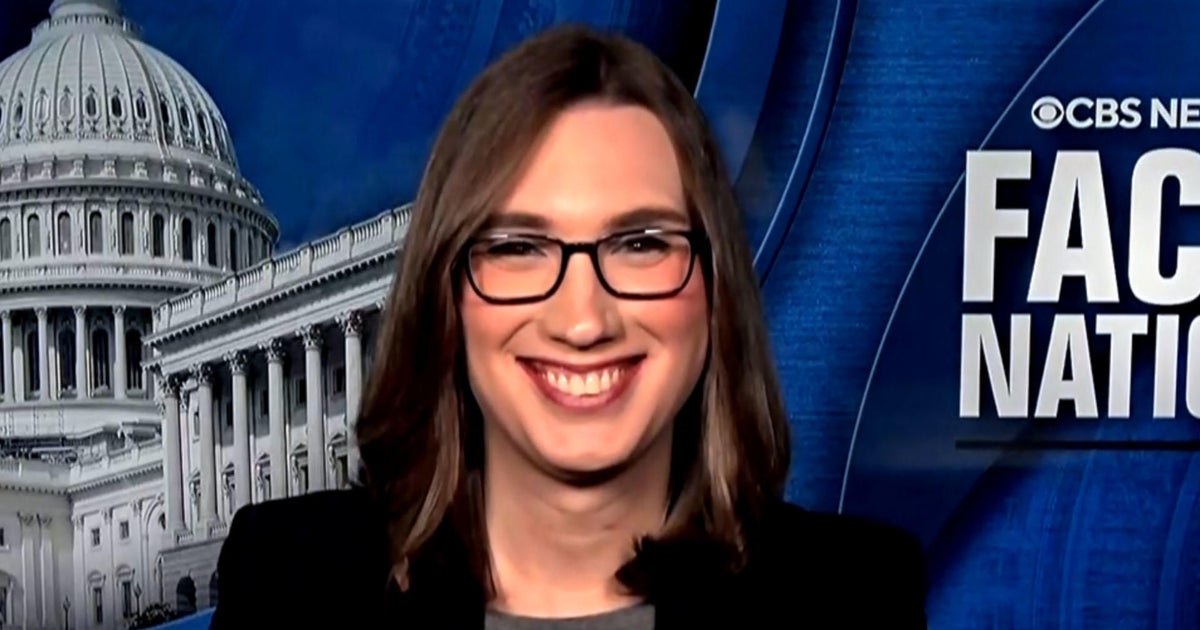CBS News
Is a debt consolidation program a good idea?

Getty Images
Today’s high-rate environment has made it pretty tough for people to juggle their daily living expenses and their revolving debt. After all, when interest rates are high overall, variable-rate debt, like credit card debt, tends to cost a lot more than it otherwise would. And, with the average credit card rate currently closing in on 22%, and persistent inflation pushing prices higher on housing, gas and food, it’s easy to see why many people’s paychecks are being stretched thin.
These types of debts could get a bit easier to manage if interest rates decline in the future, but it’s unclear if and when that will happen. While many experts expected the Federal Reserve to start slashing rates mid-year, the sticky inflation issues that have surfaced over the last couple of months have pushed out those rate-cut predictions. So, it appears credit card rates are likely to stay high, at least for the near term.
If you’re currently struggling with credit card debt, future Fed rate cuts aren’t the only solution to the issue. Enrolling in a debt consolidation program can also help you get a lower interest rate on your existing debts, making it easier to pay off what you owe. But is enrolling in one of these programs actually a good idea?
Find out how the right debt relief solution could help you pay off what you owe.
Is a debt consolidation program a good idea?
A debt consolidation program is a type of debt relief service offered by debt relief companies — and these programs work similarly to taking out a debt consolidation loan on your own.
When you enroll in a debt consolidation program, your existing unsecured debts are consolidated into one loan, which typically comes with a lower interest rate than your credit cards. The loan is then repaid by making monthly payments to the debt relief company rather than making individual payments to each credit card servicer.
In general, a debt consolidation program can be a useful tool in a lot of scenarios, and it can result in significant interest savings over time. That said, this type of debt relief option may not be the best route to consider in all situations. Here’s when a debt consolidation program may (or may not) make sense.
When a debt consolidation program makes sense
For the right candidate, one of these programs can provide much-needed breathing room and a structured path out from under the burden of unsecured debt. In general, a debt consolidation program is ideal for those who:
- Owe $10,000 or more across unsecured debts with high interest rates over 15%
- Have a steady source of income to commit to a repayment plan
- Don’t qualify for low interest rates on traditional debt consolidation loans or balance transfer credit cards due to less-than-excellent credit
And, a debt consolidation program can make sense if:
You need more affordable payments
If you need more affordable monthly payments, a debt consolidation plan can make sense. With a debt consolidation plan, you typically get a lower interest rate on your loan compared to the individual rates on your credit cards. This makes your monthly payments more affordable and more of the money is allocated toward paying off the principal balances.
You prefer a single monthly payment
Rather than juggling payment due dates across different credit card issuers, each credit card debt gets packaged into one simplified monthly payment toward the consolidation loan. This helps to eliminate the risk of missed payments and the accompanying penalties and fees.
You want a fixed interest rate
The interest rate on a debt consolidation loan through a debt consolidation program typically remains fixed for the entire repayment period, providing consistency in terms of your monthly payments.
Learn more about the best debt relief options available to you now.
When a debt consolidation program doesn’t make sense
While the benefits of a debt consolidation loan are undeniable for the right candidates, these programs aren’t right for every borrower. A debt consolidation program may not make sense for:
- Borrowers who have reasonable unsecured debt balances that could realistically be repaid debt-free within two years or less through budgeting
- Those who qualify for low APR balance transfers or personal loans
And, debt consolidation programs may not make sense if:
You want to avoid extra fees
Most debt relief companies charge fees for their programs, and in many cases, these fees can be a portion of your total debt load. Those fees, in turn, can potentially negate some of the interest savings you receive from the lower interest rate tied to your debt consolidation loan.
Your credit score isn’t high
You’ll typically need a higher credit score to enroll in a debt consolidation program than you would for another type of debt relief, like debt management or debt settlement. So, if your credit score is damaged, you may not qualify for this type of program.
You want to pay off secured debt
Debt consolidation programs have no flexibility whatsoever for including secured debts like mortgages or auto loans. They are only an option for paying off your unsecured debts.
Debt consolidation program alternatives to consider
Before enrolling in a debt consolidation program, it could be wise to explore some other options, including:
- Debt management plans: A debt management plan can help you negotiate reduced interest rates on your credit cards without any upfront fees.
- Balance transfer cards: Those with good credit may qualify for a 0% APR balance transfer credit card promotion to consolidate debt interest-free for 12-18 months while aggressively repaying balances.
- Personal loans or home equity borrowing: Qualified borrowers could explore personal loans or home equity loans and home equity lines of credit (HELOCs) from banks and credit unions as lower-fee options for consolidating debt.
- Debt settlement: Those with low credit scores, little or no income or those who have already entered default status may want to consider debt settlement, or debt forgiveness, instead, as negotiating lump-sum debt settlements makes more sense than consolidation in these situations.
- Bankruptcy: When debts exceed your assets and income, bankruptcy is the option of last resort to discharge eligible unsecured debts entirely and get a financial fresh start.
The bottom line
Debt consolidation programs provide one viable solution for debt relief — but the best path forward depends heavily on your full financial picture. Before deciding on a route to take, be sure to carefully assess your debt amount and the types of debt you have, along with your income, assets and credit. Weighing these and other factors can help you determine the best path forward.
CBS News
Former Trump national security adviser says next couple months are “really critical” for Ukraine

Washington — Lt. Gen. H.R. McMaster, a former national security adviser to Donald Trump, said Sunday that the upcoming months will be “really critical” in determining the “next phase” of the war in Ukraine as the president-elect is expected to work to force a negotiated settlement when he enters office.
McMaster, a CBS News contributor, said on “Face the Nation with Margaret Brennan” that Russia and Ukraine are both incentivized to make “as many gains on the battlefield as they can before the new Trump administration comes in” as the two countries seek leverage in negotiations.
With an eye toward strengthening Ukraine’s standing before President-elect Donald Trump returns to office in the new year, the Biden administration agreed in recent days to provide anti-personnel land mines for use, while lifting restrictions on Ukraine’s use of U.S.-made longer range missiles to strike within Russian territory. The moves come as Ukraine marked more than 1,000 days since Russia’s invasion in February 2022.
Meanwhile, many of Trump’s key selection for top posts in his administration — Rep. Mike Waltz for national security adviser and Sens. Marco Rubio for secretary of state and JD Vance for Vice President — haven’t been supportive of providing continued assistance to Ukraine, or have advocated for a negotiated end to the war.
CBS News
McMaster said the dynamic is “a real problem” and delivers a “psychological blow to the Ukrainians.”
“Ukrainians are struggling to generate the manpower that they need and to sustain their defensive efforts, and it’s important that they get the weapons they need and the training that they need, but also they have to have the confidence that they can prevail,” he said. “And any sort of messages that we might reduce our aid are quite damaging to them from a moral perspective.”
McMaster said he’s hopeful that Trump’s picks, and the president-elect himself, will “begin to see the quite obvious connections between the war in Ukraine and this axis of aggressors that are doing everything they can to tear down the existing international order.” He cited the North Korean soldiers fighting on European soil in the first major war in Europe since World War II, the efforts China is taking to “sustain Russia’s war-making machine,” and the drones and missiles Iran has provided as part of the broader picture.
“So I think what’s happened is so many people have taken such a myopic view of Ukraine, and they’ve misunderstood Putin’s intentions and how consequential the war is to our interests across the world,” McMaster said.
On Trump’s selections for top national security and defense posts, McMaster stressed the importance of the Senate’s advice and consent role in making sure “the best people are in those positions.”
McMaster outlined that based on his experience, Trump listens to advice and learns from those around him. And he argued that the nominees for director of national intelligence and defense secretary should be asked key questions like how they will “reconcile peace through strength,” and what they think “motivates, drives and constrains” Russian President Vladimir Putin.
Trump has tapped former Rep. Tulsi Gabbard to be director of national intelligence, who has been criticized for her views on Russia and other U.S. adversaries. McMaster said Sunday that Gabbard has a “fundamental misunderstanding” about what motivates Putin.
More broadly, McMaster said he “can’t understand” the Republicans who “tend to parrot Vladimir Putin’s talking points,” saying “they’ve got to disabuse themselves of this strange affection for Vladimir Putin.”
Meanwhile, when asked about Trump’s recent selection of Sebastian Gorka as senior director for counterterrorism and deputy assistant to the president, McMaster said he doesn’t think Gorka is a good person to advise the president-elect on national security. But he noted that “the president, others who are working with him, will probably determine that pretty quickly.”
CBS News
Sen. Van Hollen says Biden is “not fully complying with American law” on Israeli arms shipments

Watch CBS News
Be the first to know
Get browser notifications for breaking news, live events, and exclusive reporting.
CBS News
Rep.-elect Sarah McBride says “I didn’t run” for Congrees “to talk about what bathroom I use”

Watch CBS News
Be the first to know
Get browser notifications for breaking news, live events, and exclusive reporting.




